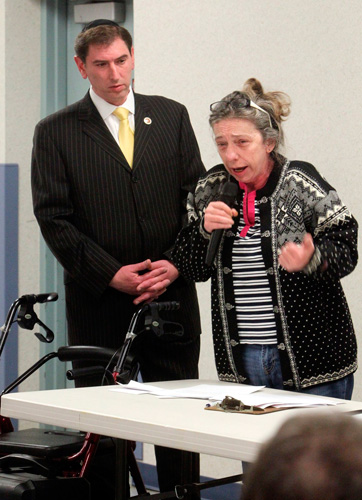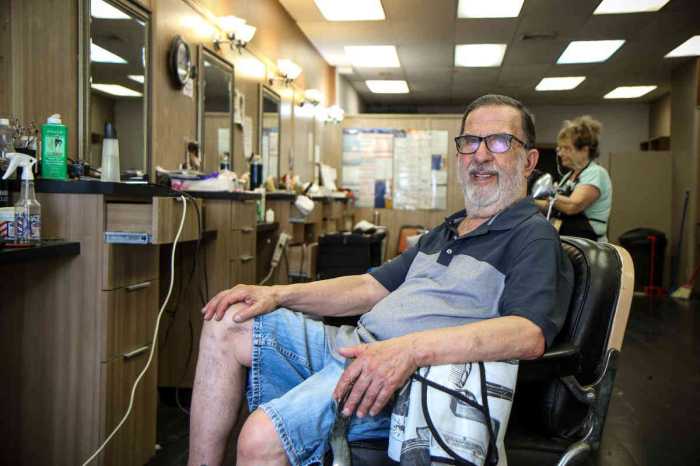The Metropolitan Transportation Authority is considering big changes to the program that serves many seniors and disabled people after getting an earful of complaints from Brooklyn riders.
The agency is looking into moving the Access-A-Ride program away from contracted “broker” car services after hearing a litany of gripes about poor service and rude drivers.
About 100 of the paratransit program’s users showed up for a town hall meeting organized by Councilman Chaim Deutsch in Brighton Beach on May 18 to air their grievances about “Stress-A-Ride,” as one user referred to it.
Long wait times, clueless dispatchers, circuitous routes on shared rides, and verbally abusive drivers were among the most common complaints. One Bay Ridge resident likened her experience with a broker driver several weeks ago to a kidnapping.
“This wasn’t a shared ride. It was an abduction,” said Christine Nucci. “It was a frightening experience, and it was just one of many.”
A car from contracted broker Premier Paratransit picked Nucci up at John F. Kennedy International Airport at 9:30 am. The driver told her that the trip back to her house would be direct, but when she was halfway home, a dispatcher ordered the driver to go back to Queens to pick up another person and drop them off in another part of that far-flung borough before taking Nucci home. When she asked the driver to drop her off back at the airport so she could call another car because she didn’t want to wait, the driver refused to stop.
She flagged down a police officer while the car was stopped at a light, but when the police officer stepped away for a moment, the broker driver sped away. Nucci eventually got home, but only after the driver transferred her to an unmarked vehicle that she reluctantly entered only because she had no other way of getting home, she said. The entire ordeal lasted nearly four hours.
According to the transit authority officials at the meeting, 20 percent of the trips the service makes daily are provided through brokers, but harrowing stories like Nucci’s have prompted the agency to consider phasing out the use of broker cars.
“Based on what I’m hearing tonight, I think I’m going to stop referring people to broker services,” said Thomas Charles, vice president of the authority’s paratransit division.
Riders with motorized wheelchairs, which require specialized paratransit vans, had even more disturbing stories. Some said that poorly trained drivers have damaged or even broken their wheelchairs with the lifting equipment. Others accused drivers of abusive shouting and intimidation tactics.
“People like myself, whose needs require the most cooperative drivers, often tend to face the most difficulties,” said Michael Wasser, an attorney and the vice president of the board of directors of the Brooklyn Center for Independence of the Disabled. “More oversight, supervision, and accountability is needed on the part of Access-A-Ride.”
Wasser was born with muscular dystrophy and relies on a sophisticated chair for most movement, but he said a driver broke it last summer while improperly attempting to get Wasser onboard a van. A supervisor from the contracted company, Starcruiser, arrived on the scene and denied that the chair was broken, he said. Neither the driver or supervisor would help Wasser get out of the vehicle. He was only able to exit the van with the help of emergency medical technicians he called to the scene.
Wasser said he was yelled at and called a “pain in the a–” when he asked another driver to adjust the equipment and avoid damage to the wheelchair. He said the lack of respect from some drivers is demeaning and unsettling.
“Drivers frequently feel empowered to act like this because there are no repercussions,” said Wasser. “I think I’m entitled to the same courtesy and treatment anyone else is.”


























